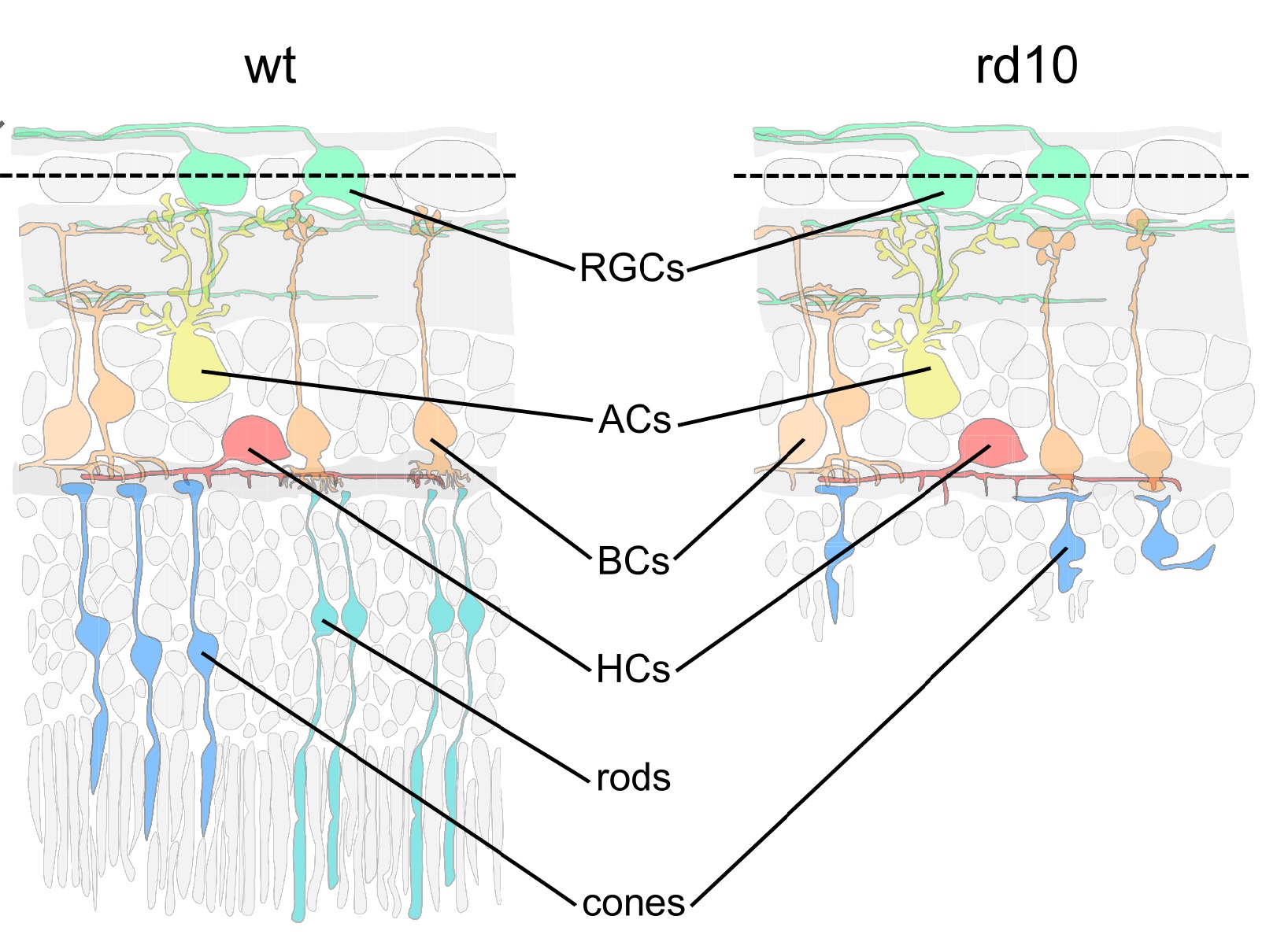News
How photoreceptor degeneration affects retinal ganglion cells in different ways
This differential susceptibility of retinal glanglion cells (RGC) circuits could be relevant for future neuroprotective therapeutic strategies.
Retinitis pigmentosa is a hereditary disease that causes the progressive degeneration of rod and cone photoreceptors, for which there is no effective treatment. Using the rd10 mouse model, which mirrors the human condition, a team of scientists from the Institute of Ophthalmic Research in Tübingen examined the disease's progression. Rods deteriorate by postnatal day (P) 45, followed by cone degeneration, with most photoreceptors lost by day P180. Up until that point, retinal ganglion cells (RGCs) remain sensitive to light, though only in photopic (light-adapted) conditions, despite significant remodeling of the outer retina. Since it is not yet known whether the different types of functional RGCs remain stable or whether some types change their activity differently or are even lost as the disease progresses, the IOR researchers in Tübingen wanted to find out whether and how the diversity of functional RGC types changes with the progression of rd10 disease.
The study highlights that the degeneration of photoreceptors in retinitis pigmentosa does not affect all RGCs equally. Certain RGC types (especially “Off” cells) are more vulnerable than others, providing insight into the selective nature of retinal degeneration. The results demonstrate that retinal circuits respond differently to photoreceptor degeneration. Recognising the heterogenous nature of the retinal degeneration is essential when designing treatments. Tailoring therapies to protect or regenerate specific RGC circuits could be relevant for future neuroprotective therapeutic strategies.
Here is the link to the full and original publication “Photoreceptor degeneration has heterogeneous effects on functional retinal ganglion cell types”
by Nadine Dyszkant, Jonathan Oesterle, Yongrong Qiu, Merle Harrer, Timm Schubert, Dominic Gonschorek, Thomas Euler

Bluesky
You can also follow us on @eye-tuebingen.bsky.social



